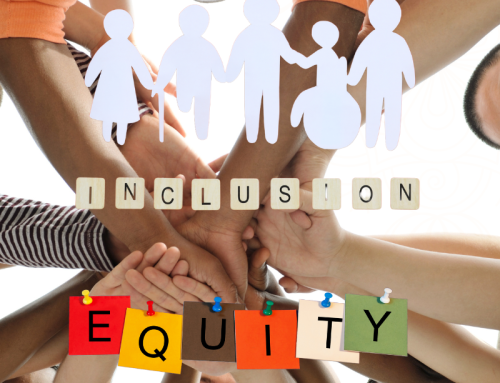 One of the biggest mistakes people make in their career development is focusing on where they want to go, not what they need. They think about titles, salary and benefits. These things are important, but if you focus on them too much, you might miss out on opportunities that can help your career. Instead, consider what you need from your next role to prepare yourself for a leadership position down the road. Your goals might be great, but if those goals don’t match your abilities or the skills needed for future roles, you could find yourself back at square one: looking for a job that meets your needs.
One of the biggest mistakes people make in their career development is focusing on where they want to go, not what they need. They think about titles, salary and benefits. These things are important, but if you focus on them too much, you might miss out on opportunities that can help your career. Instead, consider what you need from your next role to prepare yourself for a leadership position down the road. Your goals might be great, but if those goals don’t match your abilities or the skills needed for future roles, you could find yourself back at square one: looking for a job that meets your needs.
Identify what you want to achieve in your current role. This is about making sure that the goals you have for your job are aligned with the company’s vision and strategy. Identify what you need to achieve in order to be successful in your current role. An organisation’s culture and structure will affect how you’re able to accomplish tasks, so it’s important that these factors also align with one another before setting goals for yourself as an employee.
Identify how you can achieve these goals through specific actions or behaviours at work, such as learning new skills; improving existing ones; requesting additional resources; seeking mentorship opportunities; working on projects with other departments/employees within the organisation.
Your goals and needs should be clear enough that you can put them in writing, whether it is a list of bullet points or a paragraph. The more specific your goal, the better you will evaluate how well you are doing toward reaching it. Being realistic means not just something attainable but also something reasonable for yourself, given your current situation and resources. Be flexible by being open-minded when setting new objectives.
While you may feel you’ve got a pretty good sense of what the job is like and how it fits with your skills and experience, it’s important to look at the official job description. This will show to you what skills are required for success in this role, as well as offer insight into how much variety there is in daily tasks. If your current position involves lots of different projects with varied goals and deadlines, but this new role has one set project plan that doesn’t change from week to week, then it’s likely that the two positions won’t overlap very much.
While there are many factors involved here, such as location, work-life balance, make sure that they align as well. Some roles might be more lucrative or prestigious than others, but if they do not match up with what you are looking for in terms of long-term career growth or stability, then they may not be right for you after all.
You can improve your career development by focusing on your needs, not just your wants. It is not enough to just have dreams and goals. You also need a plan to get there. The best way to start is by thinking about your needs versus your wants. Your needs are the things that you must have in order to be successful. They are the things that will help you meet your goals and make you happy in the long term.
So, the next time you sit down to think or talk about your career goals, take a few extra moments to consider why you have them. Doing so will help you understand what drives and inspires you, and it may show that there are better alternatives out there for meeting those needs.





Leave A Comment